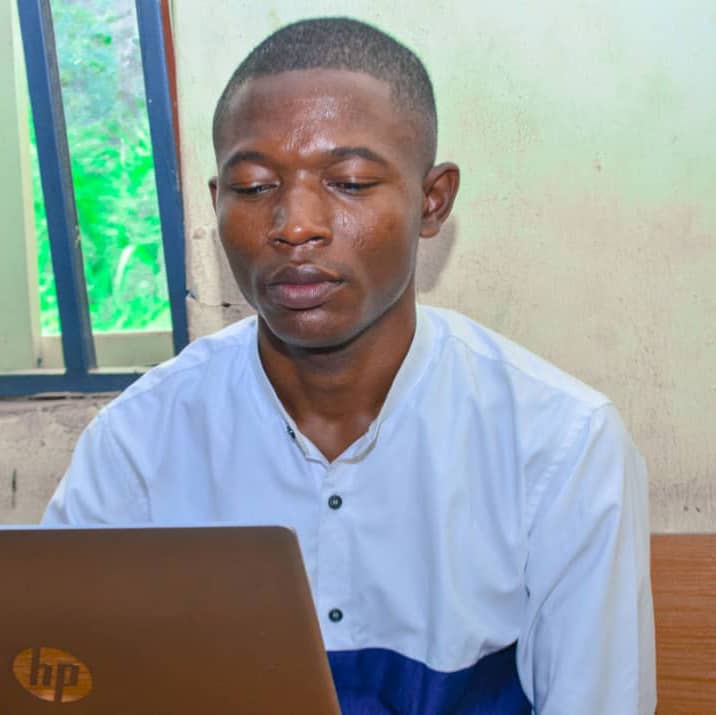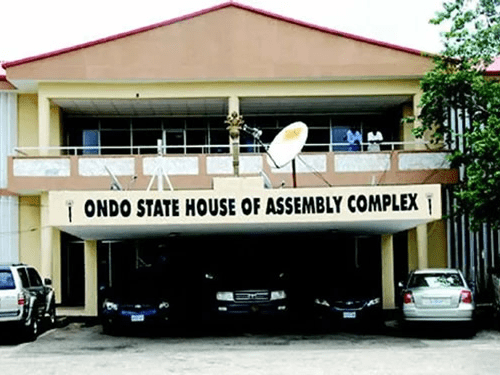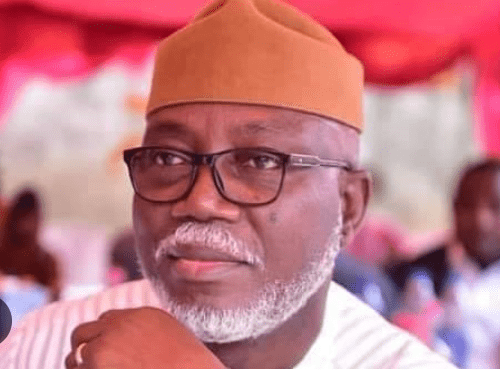Erratic internet connection is routine in Nigeria, with the country trailing in terms of broadband penetration and speed averages.
In August, when a European firm shortlisted her for a remote nutrition job that would earn her $21,600 (over N12.4 million) in six months, Simbiat Oladoja was over the moon.
She craved adorning her résumé with the job experience. She had done her research and was sure whatever was thrown at her by her potential employees would be tossed aside as though they were trivialities. She even assured her interviewees that her internet connection was good as the interview was about to commence.
But Airtel, her internet service provider (ISP), had a different plan for her. She just could not connect to the internet.

Her efforts to overcome the challenge fell flat. Ms Oladoja tried again, there was no difference. Miffed, she called Airtel’s customer care representative, but nothing changed.
On her second trial, she was told the outage was general across Abuja and Rivers – this time with a note of finality.
“When the interview started, the network just went off,” Ms Oladoja told PREMIUM TIMES. “For about 10 minutes I tried connecting but it didn’t come up and I didn’t have a backup network to continue further with the interview.”
The opportunity slipped through her fingers, and she missed out on adding a feather to her cap and making good money while doing what she loves.

“I knew how that opportunity was for me. So I was very pissed off. I wish I had an option,” the Abuja-based nutritionist said.
“It was really sad because I felt I would have passed through because the email I got was a very positive one.”
Erratic network
Just last week, MTN subscribers suffered a nationwide outage, dragging down mobile and landline data and connection speed for hours.
Erratic internet connection is routine in Nigeria, with the country trailing the world in terms of broadband penetration and speed averages, but the extent of this albatross does not hit a chord until it is measured in terms of human cost.
Being a reporter for whom time is of the essence, especially with breaking news, Vincent Ufuoma has had to put up with many hassles.
In Oye-Ekiti, southwest of Nigeria, where he lives and works as a reporter with the International Centre for Investigating Reporting, all the major network providers are not just slow, they are stagnant, he says.

Although the graduate of education and English from the Federal University of Oye-Ekiti, also called FUOYE, works remotely, he must leave home for his alma mater if he must deliver.
“As I am writing to you, I can’t work from my house,” he said over the phone.
“I am currently in a restaurant opposite the school gate and adjacent MTN and Airtel masts to work,” he added, noting that within the campus premises too, a good network is not a given, except one is close to the masts.
“Everywhere else is a struggle,” the 31-year-old reporter said, noting that this has had psychological implications on his delivery.
“I am thinking of relocating because it is already affecting my work and mental health.”
The longer the struggle lingers, the harder he has to try to convince his bosses he is committed to his job.
So he has to search for a network, however uncomfortable it may be for him, to ensure he delivers.
Snail’s pace internet
Down by a place, Nigeria ranked 82nd in the world among 110 countries — the highest in West Africa — on the 2021 Digital Quality of Life Index, a global digital well-being study conducted by Surfshark, an Amsterdam-based cybersecurity firm.
The country ranked fifth in Africa behind South Africa, Mauritius, Kenya and Tunisia — and just ahead of Morocco and Algeria.
The research lead at Surfshark, Agneska Sablovskaja, told PREMIUM TIMES that the type of cabling (copper or fibre-optic) and their age, the proximity and connection to submarine cables and the size of a country are some of the three most usual causes of bad internet connectivity.
The success of South Africa, for instance, with an average mobile speed of 38.07 Mbps, has a link to its massive undersea cables like those of EASSy — a 10,000km submarine fibre-optic cable system draped along the east and south coast of Africa — which supply respectable fibre broadband speeds.
Nigeria on the other hand uses wireless WiMAX, 3G, and 4G, and underway is the 5G connectivity rather than the broadband cables, recording an average broadband connection speed of 13.45 Mbps.
Ms Sablovskaja explained that “5G technology could be a solution, but it can be as good as the infrastructure until the first 5G tower.”
Because Nigeria’s current infrastructure like masts was planned for 2G and 3G networks, they cannot handle the upgrade to 4G network, Daniel Samuels, the chief technical officer at Xigma, an Edo State-based space science, robotics and AI firm, said.
He attributed the erratic network to poor infrastructure by the main ISPs, saying investment in electronic infrastructure is needed to bolster broadband penetration and speed.
On her part, Ms Sablovskaja noted that Nigeria needs to pay attention to its cabling by “upgrading to fibre-optics to significantly improve internet speeds,” while also “installing more mobile internet service towers.”

The telecoms too have often attributed downtime to network cuts, sometimes caused by theft and sabotage of their facilities as well as disruptions during constructions.
When contacted, the spokesperson of Airtel, Emeka Oparah, said the telecom is in its “silent period” during which comments about their operations are not discussed. The spokesperson of MTN, Funso Aina, declined comments to calls and a text message; so did the spokesperson of the Nigeria Communications Commission (NCC), Ikechukwu Adinde.
Nigeria has a booming digital market with about 101.7 million, or 48 per cent, of Nigerians relying on their smartphones for streaming and financial transactions in 2021, a figure projected to grow to 59.7 per cent by 2026.
Between January and August of 2020 alone, e-payments reached over N783.2 trillion from over five billion transactions, according to Nigeria’s central bank.
Despite this surge in traffic, fixed-broadband penetration in Nigeria remains sluggish.

Ranked 105th, Nigeria has one of the slowest broadband connection speeds globally (13.45 Mbps), but a slightly faster mobile internet (17.91 Mbps), ranking 96th.
“We need to do upgrades on our systems as higher bandwidths are available for us to use,” Mr Samuels noted. “When comparing a 2G to a 4G network, higher density of masts and antennas are required due to lower radius or coverage of 4G.”
Meanwhile, in August, Facebook, China Mobile and MTN pledged to roll out a 37,000 km transatlantic internet cable network that would improve the quantity and speed of internet access and link Nigeria as well as other African countries with Asia and Europe.
Nigeria has five international submarine cables, whereas there are now 16 submarine cable systems connecting Egypt. Egypt has a mobile speed of 20.4 Mbps as against Nigeria’s 17.9 Mbps, and the North African country’s broadband speed is almost three times faster (32 vs. 13.5 Mbps) than Nigeria’s.
However, Ms Sablovskaja said, these differences may not be solely due to higher submarine cables.
What data says about digital well-being in Nigeria
Now in its third year, the DQL study covers 90 per cent of the global population. Countries were evaluated based on a set of five fundamental digital wellbeing pillars using open-source information provided by the United Nations, the World Bank, Freedom House, the International Communications Union, and other sources.
“Nigeria lags with internet affordability (ranks 107th), e-government (95th), and e-infrastructure (90th), but shows similar to the global average results in internet quality (56th) and e-security (46th),” the report says.

The study further shows that Nigeria’s internet affordability is 90 per cent worse than the global average, adding that the world’s worst internet is the least affordable.
People in countries like Nigeria, Côte D’Ivoire and Mali require approximately a week’s worth of work to afford the internet, according to the study.

Due to this, people in Nigeria have to work the most time in the world – more than 35 hours – to afford the cheapest broadband internet.
However, the country’s broadband speed growth is one of the fastest on the planet, ranking 16th, the study shows.
Cost of data in Nigeria
After conducting 903,236 tests using 107,431 unique IP addresses, it was found that it would take 1:18:39 hours to download a 5-gigabyte movie, with the movie downloading at the speed of 8.68 Mbps, placing Nigeria 142nd on the worldwide broadband speed league of 2021.
The speed tests were taken in the 12 months up to June 30, 2021, and spanning 224 countries and territories.
On average, 1GB data plan costs about N333 ($0.88) in Nigeria, according to the 2021 worldwide mobile data pricing survey of 60 data plans carried out in February by Cable, a UK-based broadband startup.
This places Nigeria as the nation with the 43rd cheapest average price of 1GB of data. The country occupies the eighth position in Africa — behind Sudan, Somalia, Ghana, Tanzania, Mauritius, Réunion and Mayotte (the latter two are overseas departments of France around the coast of Africa).
The cheapest 1GB goes for N11.11 ($0.03) with the most expensive going as high as N2,000 ($5.25). This is a drop from $1.39 in 2020, and yet another drop from $7.91 in 2019, according to Cable.
Good ISPs are available in selected locations but they are expensive and unaffordable for the majority while the ones generally available in (most parts) are mostly unreliable and slow.
Revenue spinner
Within the last two years, the ICT sector contributed around N1 trillion to Nigeria’s GDP, according to communications minister, Isa Pantami.
Despite the economic standstill the coronavirus pandemic brought, the ICT was Nigeria’s fastest-growing sector in 2020.
In the second quarter of 2021, the sector contributed 17.92 per cent to the nation’s gross domestic product (GDP). In the first quarter, the sector alone contributed over N4 trillion to the country’s N40 trillion GDP earning.
Implications on SMEs and freelancers
While in the United States, Saint Bassey, a professional chess player, had a rating of 1900 as of 2016.
By 2019, when the 40-year-old freelance writer and coach came to Nigeria, the discovery of online chess excited him and he continued his craft.
Only that this online chess requires not only chessboard ingenuity, but also requires swift moves. So even when a player brings their A-game, poor network can be their undoing.
“An entire game can last five minutes, and if the network takes that long to send a move to the server, you are edged out,” Mr Bassey explains.
“In America, my rating was 1900. In Nigeria? It crashed to 1600. I had to stop playing,” he recalls.
Being a freelancer with clients all over the world, most of whom communicate via email or messaging apps, poor internet could make high paying opportunities slip. Mr Bassey has had to keep up with that.
“Recently I accepted a contract with an Indian who likes long free calls and he told me to upgrade my internet. I was embarrassed.”
What is the cost of these losses? Mr Bassey said they “are hard to quantify. Is it the limited opportunities? Is it the clients that won’t work with you if you have a lag? How does one quantify that?”
Mr Samuels said businesses have only continued to adapt to using what is available to them, but if attention is paid to the digital ecosystem, businesses will thrive, a prerequisite for a booming economy.
Emmanuel Ohanwe, a business intelligence developer, said the onus lies on the government to subsidise the laying of infrastructure to help small businesses.

“With time, the vast opportunities from this would promote small businesses and reduce migration. SMEs can use this to leverage the data of the digital space to reach larger markets,” the Lagos-based consultant, said.
“Because SMEs have to also understand branding, we can have a minor ecosystem to bring them together for them to continue to expand.”
Every 10 per cent increase in connectivity enables a 1.38 per cent growth in GDP, the World Bank has identified, saying broadband internet connectivity is a vital means for economic growth.
“Inventions or businesses that depend heavily on internet connectivity are the rarest to find in these parts, which means that the economic and technological developments rely directly or indirectly on connectivity,” Mr Samuels noted.
“Tesla vehicles for example constantly communicate with one another and its main servers sharing amongst themselves traffic data which they in turn use to properly predict routes and also train their AI algorithms.
“Also young Nigerians who also have ideas on companies that rely on connectivity — like streaming companies — are handicapped due to the magnitude of this problem.
“If we eventually start getting good connectivity, more opportunities and possibilities would become available for companies or startups in multiple sectors, which will directly or indirectly improve the economy and standard of living of the country,” he added.






















